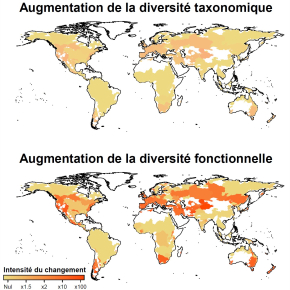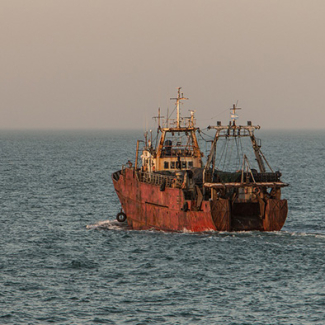
Worldwide freshwater fish biodiversity profoundly changed by the introduction of non-native species
Until now, on a global scale, no one had studied how the introduction of non-native fish species have modified the functional diversity of freshwater fish communities. Doing so involves testing whether the introduced species perform different ecological roles (food acquisition or locomotion abilities, for example) than those ensured by native species. This type of study has finally been conducted by the CNRS, UT3 Paul Sabatier and IRD scientists1 . They measured morphological traits associated with locomotion and nutrition in more than 9,000 out of the 13,000 species of freshwater fish known to date. They found that while the introduction of non-native fish increased the number of fish species in worldwide rivers by around 15% on average – a fact already known to scientists – it also increased the diversity of their functional attributes by 150% on average. At the global level, scientists noticed that introducing non-native species led to an increase in average body size and an overrepresentation of laterally flattened species such as carp or black bass. These functional changes are believed to be linked to the presence of dams, which are favourable to the establishment of non-native species that can move and survive in a stagnant environment. These results, published in the November 2018 edition of Ecology Letters, highlight the need to consider different components of biodiversity other than the well-studied number of species, in order to assess the impact of biological invasion on ecosystems.

- 1The “Evolution et diversité biologique” laboratory (CNRS/Université Toulouse III – Paul Sabatier/IRD) and the Centre pour la biodiversité marine, l’exploitation et la conservation (CNRS/Université de Montpellier/IRD/Ifremer)
Non-native species led to marked shifts in functional diversity of the world freshwater fish faunas, Toussaint A., Charpin N., Beauchard O., Grenouillet G., Oberdorff T., Tedesco P., Brosse S. & Villéger S., Ecology Letters, Volume 21, issue 11 (November issue). https://doi.org/10.1111/ele.13141


